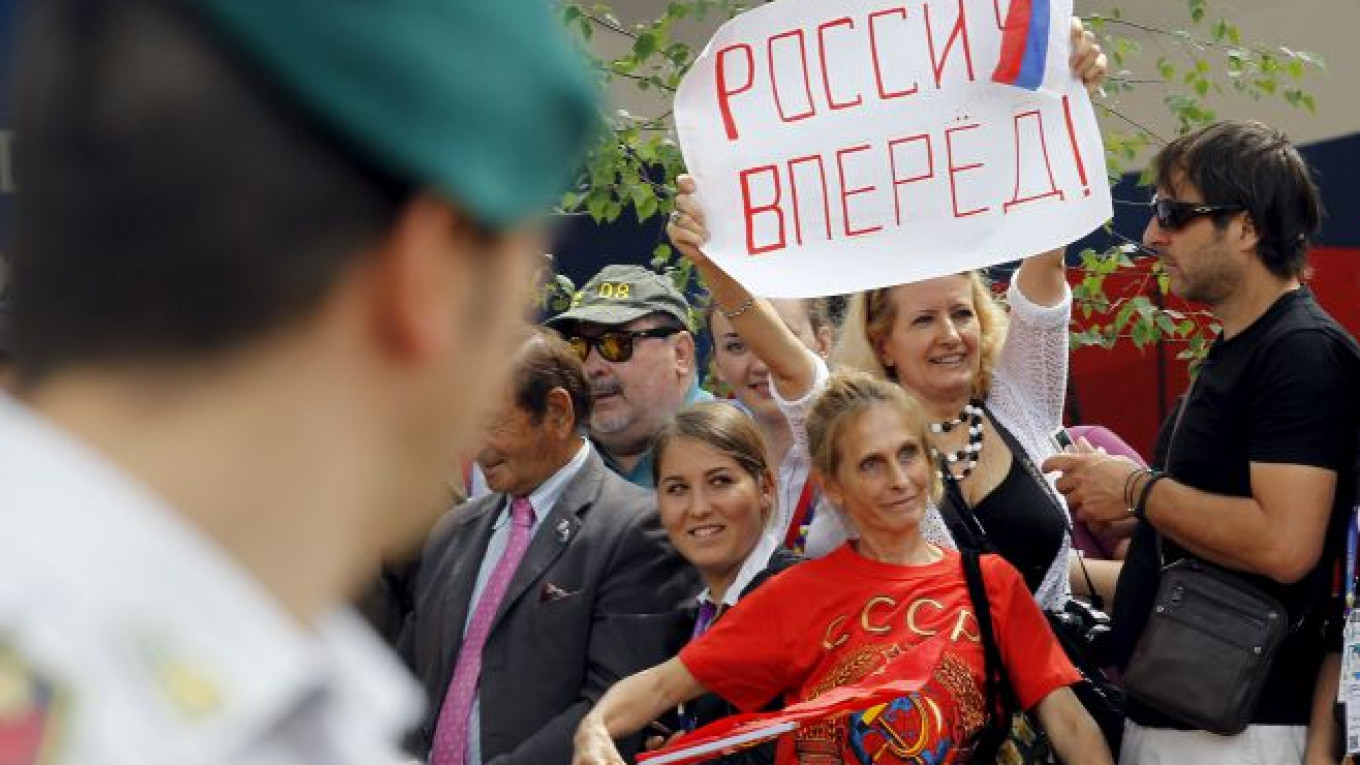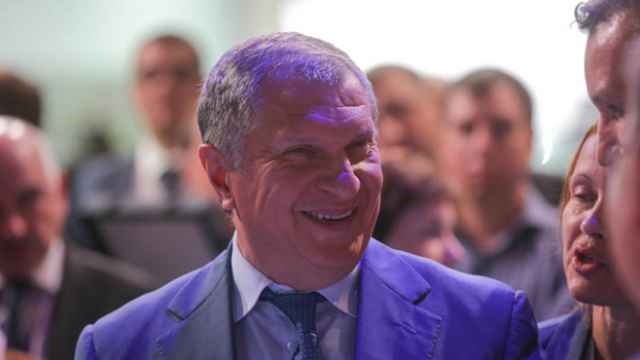From January to April, Russia's mortality rate rose by 3.7 percent as measured for the year, and by 5.2 percent for that quarter alone, according to the State Statistics Service. On Thursday the agency also reported that the number of Russians living in poverty increased from 19.8 million, or 13.8 percent of the population in the first quarter of 2014, to 22.9 million or 15.9 percent of the population in the first quarter of 2015.
That is the result of high inflation, the consequently higher minimum subsistence salary and the resultant drop in real incomes. The poverty level also grew in the previous year, but only by 0.4 percent, from 15.5 million people or 10.8 percent of the population in 2013 to 16.1 million people or 11.2 percent of the population in 2014.
Prime Minister Dmitry Medvedev might have to address the rising poverty level, but it is unlikely that politicians or state-controlled television channels will devote much attention to this issue or to the increase in mortality and unemployment in Russia. They have removed domestic problems from the political agenda.
And even if national television does make a passing reference to them, commentators quickly shift the focus to blaming everything on the United States. The general rule is that if state-controlled television makes no mention of poverty, the problem does not exist. That is one way the authorities choose to respond to domestic problems — by ignoring them.
Nevertheless, Russia's economic crisis is deepening. Citizens daily encounter its effects in the form of higher prices for almost all goods and services, the need to cut back on the variety and quality of foodstuffs, the significantly reduced buying power of their salaries and increasingly unaffordable medical care and medicines.
Public opinion polls indicate that Russians are aware of the gravity of the economic problems and lack faith that the authorities can pull the country out of the crisis. And yet those very same people support the Kremlin's foreign policy that has, they believe, restored Russia's "greatness." This "greatness" propaganda campaign has convinced ordinary Russians to see their emptying pocketbooks as a necessary sacrifice for achieving victory over those damned "Yankees."
The authorities might also respond by hunting for domestic and foreign enemies and saboteurs. That list might include inimical foreign intelligence services, a so-called "fifth column" of opposition forces or businesses supposedly profiteering at the expense of the people. In certain cases, especially when a group of citizens actively fights for its interests, the Kremlin might make a scapegoat of a "bad boyar" to mollify the rabble or even repeal one of its own unpopular decisions.
But according to political analyst Alexei Makarkin, if the people remain silent, the authorities will pay no attention to the problem. In Russia, when everyone finds themselves in the same sinking boat, they all tend to endure it in silence.
That, combined with all the television-induced mania over Russia's newly restored "greatness," makes it very unlikely the people will complain or push their demands. Instead, according to the Institute of Sociology of the Russian Academy of Sciences, the Russian people place ever fewer hopes on the government and attempt to provide for themselves and their families through their own unaided efforts.
Unfortunately, the problems not only persist, but are growing more numerous and urgent. The leadership's tactic of simply eliminating them from the political agenda will negatively affect domestic policy and is fraught with unpredictable, possibly tumultuous consequences.
Andrei Sinitsyn is a correspondent and op-ed contributor for Vedomosti. This comment originally appeared in Vedomosti.
A Message from The Moscow Times:
Dear readers,
We are facing unprecedented challenges. Russia's Prosecutor General's Office has designated The Moscow Times as an "undesirable" organization, criminalizing our work and putting our staff at risk of prosecution. This follows our earlier unjust labeling as a "foreign agent."
These actions are direct attempts to silence independent journalism in Russia. The authorities claim our work "discredits the decisions of the Russian leadership." We see things differently: we strive to provide accurate, unbiased reporting on Russia.
We, the journalists of The Moscow Times, refuse to be silenced. But to continue our work, we need your help.
Your support, no matter how small, makes a world of difference. If you can, please support us monthly starting from just $2. It's quick to set up, and every contribution makes a significant impact.
By supporting The Moscow Times, you're defending open, independent journalism in the face of repression. Thank you for standing with us.
Remind me later.






